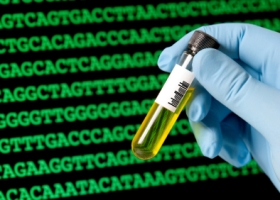 Let’s face it: Imagining the means of humanity’s ultimate destruction makes for great entertainment.
Let’s face it: Imagining the means of humanity’s ultimate destruction makes for great entertainment.
There are no shortages of novels, movies and television shows featuring threats of global annihilation – zombie viruses, meteors hurtling through space, nuclear warfare – or opening up post-apocalyptic landscapes laid waste following a collision of unchecked scientific and technologic advances with the those worst of human traits – greed, irresponsibility, megalomania. And as an unabashedly enthusiastic science fiction fan, I love that stuff.
So, naturally, when anyone starts talking game-changing technologies such as DNA cloning or CRISPR, my brain almost immediately goes rifling through its compendium of science fiction references in search of pop culture context. Mention human cloning, and I’m thinking of The Boys from Brazil and (my new favorite show) Orphan Black. What about genome editing? Well, that reminds me of Gattaca and its aseptic world in which the aristocracy is defined by genetic superiority rather than financial wealth.
I know I’m not alone these associations. A number of film and book references made their way among speakers at the recent BEINGS 2015 bioethics meeting in Atlanta – a first-of-its kind gathering of a wide range of guests from scientists to spiritual leaders aimed at drafting guidelines for cell-based medical approaches, particularly those that could affect the inherited human germline. As panelists began outlining the scope of those potential guidelines, the references began flying – books such as Margaret Atwood’s Oryx and Crake, for instance, a dystopian work in which an engineered virus all but wipes out humanity, to films such as Elysium, which might more accurately be classified as a utopian work – though, at the end of the day, both genres tend to spell equal disaster for humanity.
The truth is that we all use such pop culture references as a communication shorthand for describing often-complex ideas. ( I, for one, tend to be particularly prolific in casual conversation – bordering on Gilmore Girl-like at times.)
But when talking about technology – CRISPR, for instance – that promises such huge implications matched only by its potential for curing some of our most devastating diseases, we really need to start separating fact from fiction.
And that’s where efforts by the BEINGS 2015 group, as well as a recently launched U.S.-focused initiative from the National Academy of Sciences and the Institute of Medicine could prove crucial, providing much-needed factual information, not only to policymakers, who are struggling to catch up with the rapidly moving gene-editing field, but to the public, who will have to get on board if companies using the technology hope, at the very least, to hit their recruitment goals for clinical trials.
Unfavorable public opinion also has a way of moving upward to those government officials who have the power to pull the plug on research deemed too controversial. Biopharma has only to look back to the last decade, which saw an administration’s worth of federal funding withheld from embryonic stem cell research based on reasons having little to do with science.
The same could happen to gene-editing technology. As NYU bioethicist Arthur Caplan noted at last month’s BEINGS meeting, “there are people convinced that some scientist out there is going to apply CRISPR for eugenics purposes.”
As admittedly nuts as that sounds, we all know that fears of creating a race of people with enhanced genetic traits – a concept made all the pricklier by notions of cultural, racial and ethnic biases – could easily be exacerbated in the press. All we need are a couple of irresponsible celebrities who take advantage of their large public followings to endorse discredited research. That’s how we ended up with a measles outbreak in 2015, a news story that might have seemed like science fiction itself only a decade ago.
And I’m not saying we should give up our science fiction pursuits. I certainly have no plans to surrender my geek membership card. And reading and watching what-if fiction can still impart philosophical lessons, such as it being a good idea to proceed cautiously with new discoveries and technologies.
Actually, that’s probably a decent approach to most areas of life, not least of which when it comes to genetic manipulation.
Let’s just make sure we proceed with the facts.
